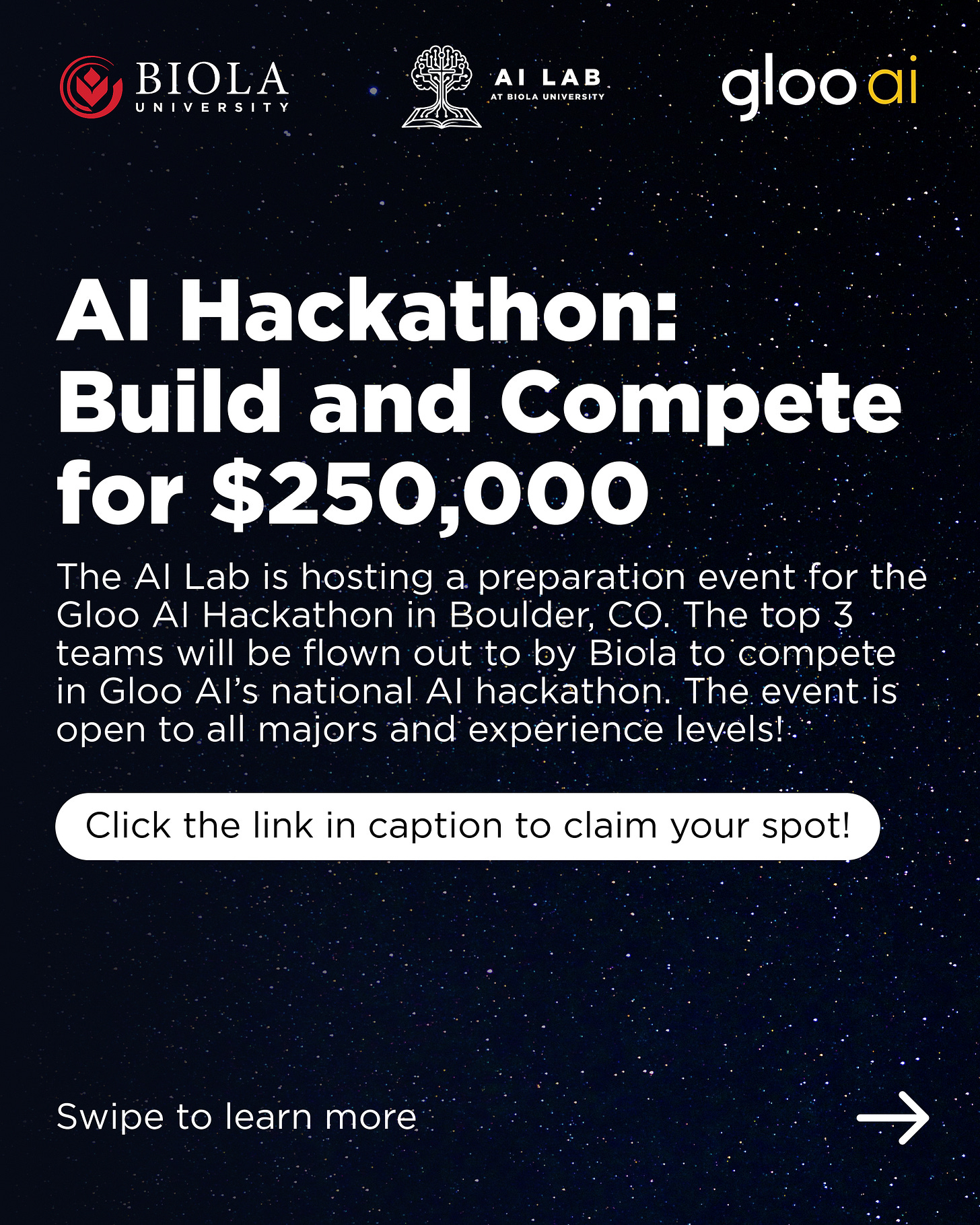Creating AI for human flourishing
Or: how do you explain what a hackathon is?
This week saw the kickoff of the Gloo AI Hackathon’s 30-day hacking window. If you live in the world of AI and coding, this first sentence makes absolute sense. But if you do not, then you have questions. What is a hackathon? What do you mean by a hacking window?
This was the problem we were trying to solve at Biola the past couple of weeks. In our first year in the Biola AI Lab (last year), we were trying to help students, faculty, and staff make sense of AI and its place in academic endeavors. And I think we did a pretty good job. We want to continue these efforts this year, but move to the next level. Enter the hackathon.
A “hackathon”, simply put, is a competition of ideas expressed in software. Teams form around a specific idea for a new software application and build it, competing against other teams to create solutions that meet the goals of the hackathon. In the case of the Gloo AI Hackathon, the goals are to develop applications that utilize AI in some form that also can be shown to positively align with human flourishing. Winners will be awarded in several categories and monetary awards will be given.
The key to a successful hackathon entry is of course, first, to have a good idea. But equally (and potentially more) important is the makeup of the team. And here is where we ran into trouble. For a small segment of students and alumni (our primary target), the concept of a hackathon is a given. But for the large majority, it sounded intimidating or something only the programmers would be interested in. But a successful team requires much more than a programmer! Here’s how we are putting it in our materials:
A good team should have at least one person who can "create", whether through traditional coding or vibe-coding (or some combination!), as well as other contributors who can help flush out the idea, the use cases, understand the business implications, and tell the story.
So our job is to match those that can “build” with those who know how to tell stories, know business, and those who can provide vision. These are the teams that will win.
Beyond the potential of winning a prize and gaining recognition, a hackathon has another component: networking. And as we all know, networking is the secret sauce to career success. At the Gloo AI hackathon event, the participants will meet a variety of people and companies that share the same interests and values. New friendships will be formed, career trajectories will be improved, and new companies will be launched.
So with the opening of the “hack window” this week (which just means that you can start building your projects), we launched the “AI Lab Hackathon Incubator Kickoff” event this past Monday with much success (highlight video below). As of this writing, we have ten teams and dozens of participants from across campus.
So then, you might be asking, what is the problem? To me, this event should have been ten times as big! I have talked to several faculty on campus that said they would have talked with their students about the event, but were unsure how those students would benefit or even be able to participate. So while we were happy with the turnout, we are already thinking about how to promote more widely (and more clearly) next year.
I would love to hear from any of you about how you understand a hackathon and have been able to promote it to those who are not aware of what they are or the benefits of participating. I would also be happy to answer questions about what we are doing in the AI Lab in general or this hackathon in particular. Leave your questions in the comments.


